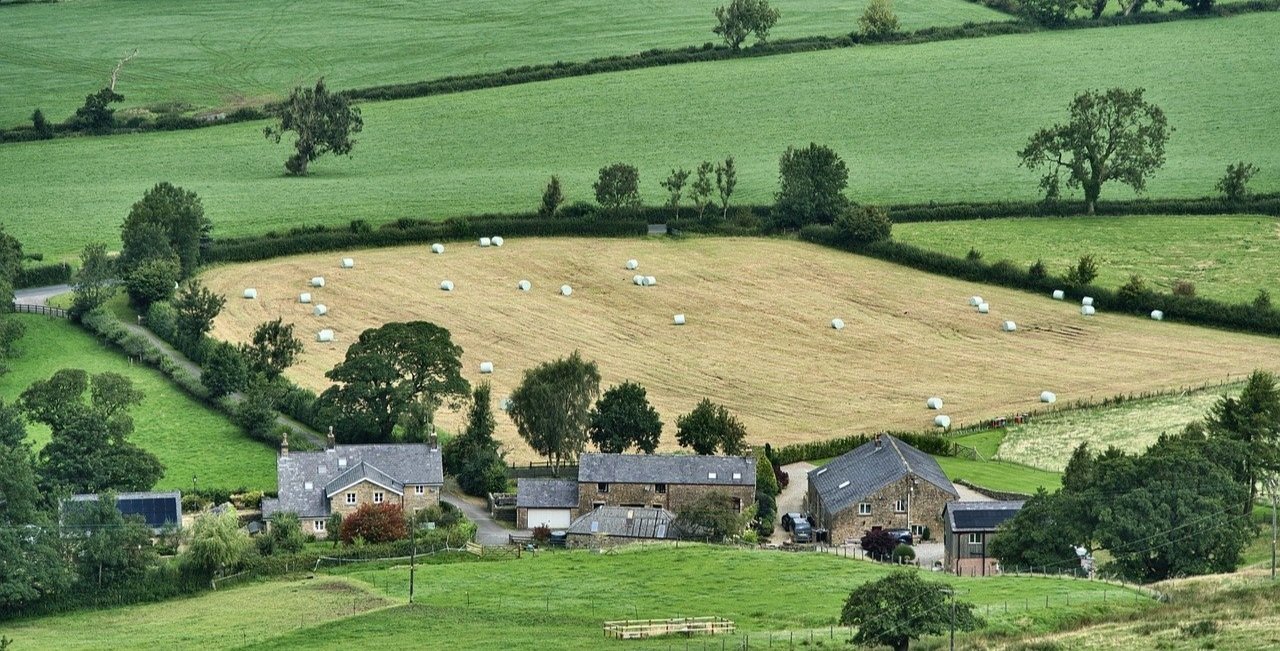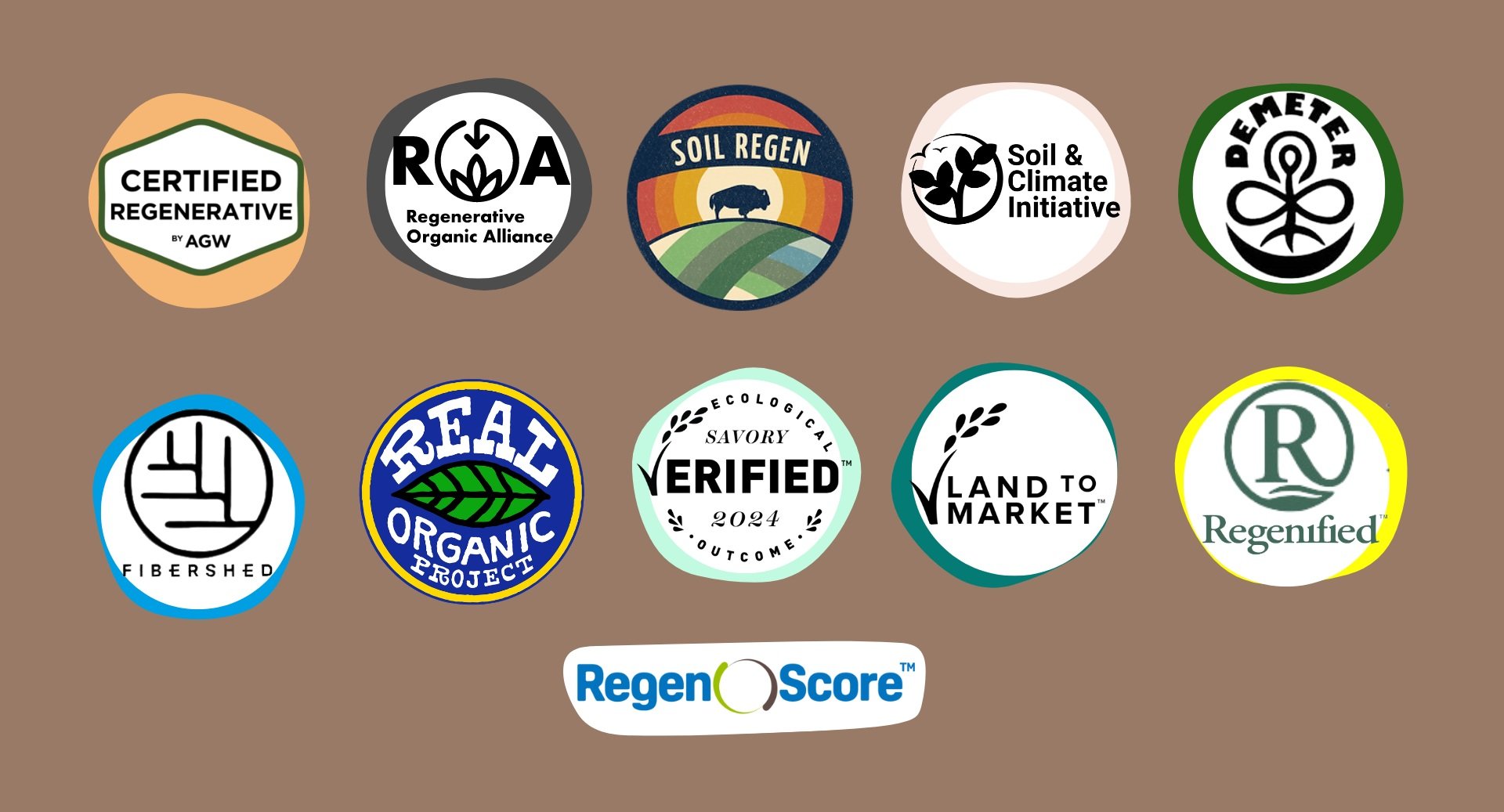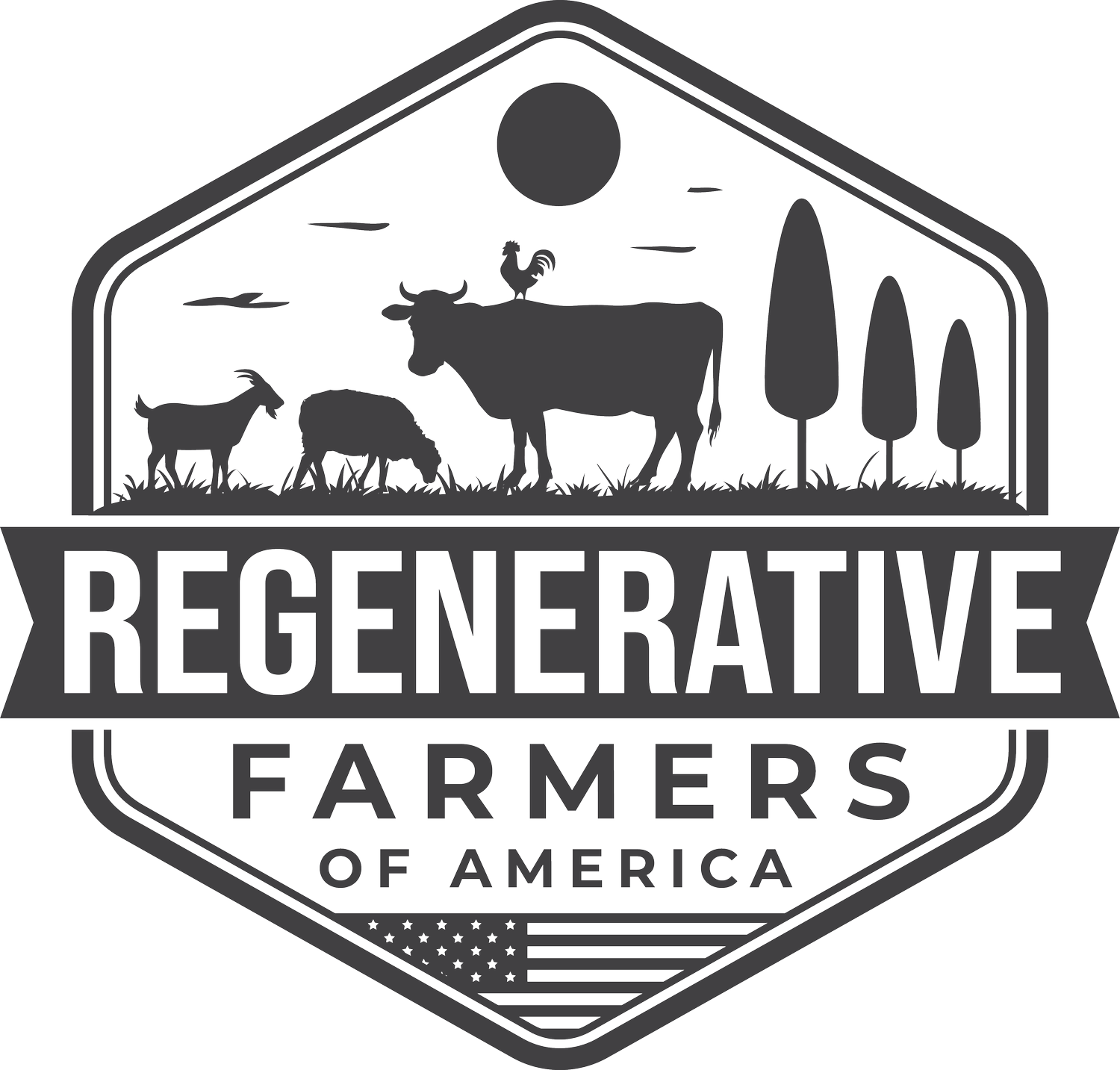
Regenerative
Certifications & Verifications
Regenerative Agriculture Certifications are increasingly popular and mainly offered by nonprofit organizations. These certifications confirm that farming practices focus on improving soil health, biodiversity, and ecosystem resilience.
For farmers looking to implement sustainable methods and consumers interested in environmentally friendly products, these certifications provide a reliable way to identify and support such practices.
Below are some certifications and verifications you can consider, each emphasizing different aspects of regenerative agriculture.

Regenerative Organic Alliance
-
A certification that strengthens the USDA Certified Organic label, focusing on enhanced soil health, animal welfare, and fair treatment of workers.
This certification covers a range of products including food, textiles, and personal care items, detailed in their product directory. It's aimed at farmers, buyers, and processors, and requires that farms already hold or are working towards Organic certification simultaneously.
If farms already have certifications for animal welfare and/or social worker justice, ROC® auditors will evaluate these for any gaps. ROC® maintains a team of 100 trained auditors in North America and globally to ensure compliance and integrity in the certification process. -
Soil testing is required every 3 years. To become certified, a variety of audit criteria must be met, including practices like cover cropping (for a complete list, refer to the Regenerative Organic System Plan).
The criteria differ across areas such as soil health, animal welfare, social fairness, and requirements for buyers and processors. -
Farmers are charged an annual fee of 0.1% of their total gross crop production.
Brands and other entities that make consumer-facing claims under the ROC® label are required to sign a license agreement and pay licensing fees calculated on their annual revenue.
Soil Regen
-
Soil Regen offers the Regeneratively Grown™ and Regenerative Verified™ certifications for farmers, ranchers, and food companies.
These certifications indicate that the products and methods used actively improve ecosystems, focusing on soil health, carbon capture, and biodiversity. They provide consumers with confidence that their purchases support environmentally responsible and sustainable practices.
These certifications apply to a variety of food products, including meat and eggs. -
Recertification is conducted annually.
-
Intake Fee: $2 per acre (minimum $250).
Recertification Field Intake: $0.75 per acre.
Platform Integration: $30 annually for each producer per project; $25 for additional land projects per producer.
Field Delineation: $0.50 per acre.
Regenerative Certified Laboratory Analyses: $125 for every 100 acres or for each field if smaller.
Verification Process: $1.25 per acre minimum.
Additional Costs: Costs for data procurement and third-party soil sampling vary by management practices, location, and farm size.
Soil and Climate Initiative
-
Be recognized and rewarded for your regenerative transition work!
This certification from Green America nonprofit is available for any farm, ranch, or grower across all production systems. It mainly focuses on grains and specialty crops for farmers and brands.
While SCI does not mandate achieving specific outcome targets, it ensures that participant farms are actively following their transition plans, conducting and reporting necessary tests, expanding their transitioned acreage, and engaging with the SCI practice communities.
It provides farms with in-lab and in-field tests to better understand soil conditions and management impacts, with expert agronomic support to interpret results.
-
For detailed information about timelines and costs, please visit their website. Click here.
-
For detailed information about timelines and costs, please visit their website. Click here.
Demeter USA
-
Demeter USA certifies Biodynamic farms and products across America, expanding beyond the National Organic Program's requirements.
The Demeter standard imposes stricter rules on imported fertility, integrated pest and weed management, water conservation, and biodiversity. It also focuses on social responsibility and animal welfare.
Certified products range from fruits and vegetables to grains, herbs, meats, dairy, oils, wine, chocolate, textiles, spirits, cosmetics, body care products, and compost.
Farmers, ranchers, and processors can apply for the Demeter certification marks "Biodynamic®", "Demeter®", and "Demeter Certified Biodynamic®" to denote their adherence to these high standards. Information about certified farms, processors, and products is available through their online directory and map.
-
For certification, the land must first comply with the National Organic Program (NOP) standards and then be managed according to the Demeter Biodynamic® Farm Standard for one year.
Applications are accepted year-round, typically reviewed in the spring, with inspections conducted in the summer. The certification process generally concludes by the fall.
-
The cost for a new farm application is $350, while renewal costs $220. For processors, the initial application fee is $550, with renewals at $320.
Annual inspections cost between $400 and $1000, varying by travel expenses and the operation's complexity.
Additionally, a licensing fee based on total gross sales of certified products is charged at 0.5% for farms and 0.6% for processed products.
Fibershed
-
The Climate Beneficial certification by Fibershed certifies that textiles and natural fibers like wool, cotton, and hemp contribute to carbon sequestration and climate change mitigation.
It ensures these products are from regenerative practices enhancing soil health and biodiversity.
Originally for Northern and Central California producers, it has expanded to include regions such as the Southeast and Intermountain West, along with an affiliated program in New York's Hudson Valley, supported by a USDA grant. -
Producers initially commit to yearly carbon farming practices following baseline soil sampling. After verifying these practices annually, they receive a Climate Beneficial Transitional label.
For full Climate Beneficial verification, producers must develop a detailed Carbon Farm Plan with a trained technical assistant, submit annual reports, and conduct soil tests every three to five years. -
There is a $40 annual membership fee for the Fibershed Producer Program.
The Climate Beneficial Fiber program itself incurs NO additional costs; soil testing is funded by Fibershed, and the Carbon Farm Plan is usually financed by the RCD or other partners.
Real Organic Project
-
The Real Organic Project is a farmer-led certification developed by organic farming pioneers to address shortcomings in USDA Organic standards.
This program ensures greater transparency and recognizes farms that emphasize soil health and animal welfare in their organic practices. It currently certifies over 1,000 farms nationwide. -
If approved, an inspector arranges a 1.5 to 2-hour farm visit during the growing season to verify compliance with Real Organic Project Standards.
Physical inspections occur every 5 years or sooner if significant changes in operations arise. Following a successful inspection, farms are authorized to use the Real Organic Project logo on their products.
Producers must also submit an annual renewal application for continued certification. -
The Real Organic Project farm certification is FREE of charge. The program is supported by contributions from consumers, farmers, and private foundations committed to maintaining an organic certification system characterized by integrity, transparency, and true organic farming values.
Savory Verified
-
Ecological Outcome Verification (EOV) is a monitoring protocol focused on outcomes for grassland ecosystems, currently used across more than 5 million acres worldwide.
EOV assesses both early and delayed indicators to provide a comprehensive evaluation of ecosystem health. For more information, click here. -
EOV operates on 2 timelines. Each year, an EOV monitor evaluates qualitative indicators such as bare ground and biodiversity above ground. Every 5 years, more detailed data including plant diversity, water infiltration, and soil characteristics are gathered.
During these assessments, soil samples are analyzed in a lab for quantitative measures like soil carbon and water-holding capacity. -
For detailed cost information and additional details, please visit their website. Click here for more.
Land to Market
-
Land to Market is a verification standard for meat, dairy, wool, and leather products, using the Ecological Outcome Verification (EOV) protocol to measure and document improvements in soil health, biodiversity, and ecosystem resilience.
This program aids rangeland managers in monitoring land health to inform their management strategies and connect them with distinct supply chains.
It also serves as a marketplace solution for brands and suppliers looking to support regenerative agriculture by sourcing verified materials and ingredients. -
A baseline monitoring plan is established and applied in the 1st year.
Annual short-term monitoring follows, with comprehensive long-term evaluations occurring every 5 years. -
Costs depend on local rates for EOV Monitors/Verifiers, the size of the land, and the type of monitoring conducted.
An EOV Verifier is necessary for establishing the baseline measurement in the first year, while an EOV Monitor is needed for annual assessments of short-term indicators.
Regenified
-
Gabe Brown’s certification process.
The Regenified certification marks products and practices that support regenerative agriculture, focusing on soil health, biodiversity, and ecological resilience.
It identifies products for consumers interested in sustainability and comprehensive land management. Regenified certifies both farms and various products such as wheat, wine, and bourbon. -
The process starts with a baseline evaluation, which involves soil testing every 3 years and an assessment of current practices. Immediate certification may result from this initial evaluation, depending on the outcomes.
Applicants are evaluated against specific standards and criteria that vary depending on the type of their operation. -
Costs differ for farmers, ranchers, and buyers, with affordable project-based fees tailored to the size of individual farmer and rancher operations.
Buyers managing multiple farm and ranch operations are charged project-based fees as well.
RegenScore
-
RegenScore™ offers a flexible, unified framework designed to accommodate growers at any stage of their regenerative journey by integrating various monitoring and verification methods.
It assigns a numerical value to farms and ranches, providing purchasers with a clear understanding of each operation's progress towards regenerative practices. This scoring system is available to all farmers and ranchers, regardless of their stage in the regenerative process.
Suppliers, aggregators, and distributors can also receive a collective RegenScore™ for the producers within their supply chain. -
When a producer completes the RegenScore™ onboarding survey, they are enrolled in the program and placed into one of three categories: transitional, continual improvement, or regenerative.
Producers start in the 'Transitional' category and have 2 years to advance to 'Continual Improvement,' where they can stay for up to 5 years before needing to progress to the 'Regenerative' category. Once in the 'Regenerative' category, they can remain indefinitely.
Onboarding surveys must be updated at least every 2 years. -
Onboarding and generating a RegenScore™ is FREE for producers. However, certain verification methods like certifications, satellite imagery, and third-party verifiers may incur external costs.
RegenScore™ also accepts more affordable verification options such as geotagged/timestamped photos and videos, receipts/billing statements, and online calculators.
FAQs
-
Regenerative Agriculture Certifications are labels or seals that indicate that a product or farm has been produced using regenerative agriculture practices.
These certifications are designed to provide consumers with a clear understanding of how their food is produced and to support farmers and producers who are using regenerative practices to regenerate the soil, enhance biodiversity, and sequester carbon. -
Regenerative Agriculture Certifications are important because they help to promote and support the adoption of regenerative agriculture practices. By providing consumers with a clear and recognizable label, these certifications make it easier for people to choose products that have been produced in a way that is beneficial for the environment and their health. They also provide farmers and producers with a way to differentiate their products in a crowded market and to be recognized for their commitment to sustainable and regenerative practices.
-
There are several Regenerative Agriculture Certifications available, including the Regenerative Organic Certification (ROC), the Savory Institute Land to Market Certification, the Soil Association Organic Standard, and the Demeter Biodynamic Certification. Each of these certifications has its own set of standards and requirements, but they all share a commitment to regenerative agriculture practices. See above for details.
-
Certified regenerative products or farms will usually display a certification seal or label on their packaging or website. If you are unsure whether a product or farm is certified, you can check the certification organization's website or contact them directly to verify.
-
Regenerative Agriculture Certifications are designed to be trustworthy and transparent. These certifications are typically based on rigorous standards and undergo regular third-party audits to ensure compliance. However, it is important to note that not all certifications are created equal, and some may have different standards or levels of oversight. It is recommended to research the certification organization.
Looking for more customers & exposure for your regenerative farm?
List on our Regenerative Farmers map. No certification required!











